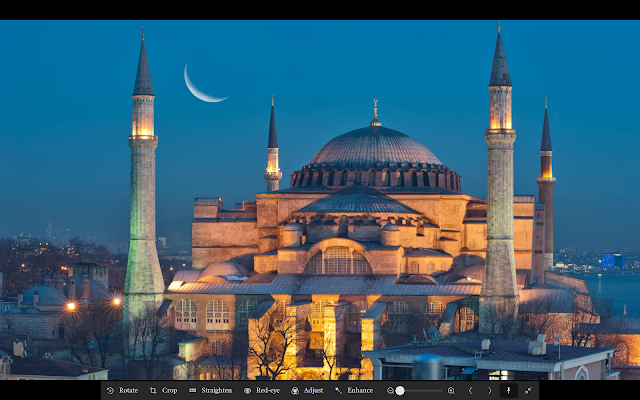On Muhammad and Islam, The Spirituality and the Brute Force: An Unbalance
A Sword Verse:
فَإِذَا ٱنسَلَخَ ٱلْأَشْهُرُ ٱلْحُرُمُ فَٱقْتُلُوا۟ ٱلْمُشْرِكِينَ حَيْثُ وَجَدتُّمُوهُمْ وَخُذُوهُمْ وَٱحْصُرُوهُمْ وَٱقْعُدُوا۟ لَهُمْ كُلَّ مَرْصَدٍۢ ۚ فَإِن تَابُوا۟ وَأَقَامُوا۟ ٱلصَّلَوٰةَ وَءَاتَوُا۟ ٱلزَّكَوٰةَ فَخَلُّوا۟ سَبِيلَهُمْ ۚ إِنَّ ٱللَّهَ غَفُورٌۭ رَّحِيمٌۭ ٥
[Surah At-Tawbah, 9:5]
Translation: But once the Sacred Months have passed, kill the polytheists wherever you find them, capture them, besiege them, and lie in wait for them on every way. But if they repent, perform prayers, and pay alms-tax, [i.e., convert to Islam] then set them free. Indeed, Allah is All-Forgiving, Most Merciful.
Can misinterpretation change 'Flowers are beautiful' to 'Let's kill Jack and Harry'? No, isn't it? Even if Islamic apologists try to cover this up with an unexplained allegation of misinterpretation, how far can their 'true interpretation' be from this? And why should a decent line be ever written, unless by a madman, in a way such that direct and undistorted interpretation is so hideous?
One friend asked me to tell him (or write) about my take on Hazrat Muhammad and Islam. I like to take fact as fact, and facts make sense when not attached to unnecessary emotions of attachment or hatred. Here goes my understanding, in brief, from an academic perspective, and from the perspective of an open-minded non-believer. Another friend, a stauch leftist, had last week called me ‘prejudiced’ as against anything challenging my culture, but then later he told me that my arguments don’t seem prejudiced after all. But I don’t mind being, and being perceived as, prejudiced against something that has bothered my people for a millenium. Parallelly, my training as a student of mathematics has taught me the art of being objective inspite of prejudices. A wrong intuition never leads me astray from a concrete proof; yet, human as I am, I have my pre-conceived notions and mathematicians know how not to take all of them too seriously. Anyway, about Islam and Muhammad...
A friend asked me, ‘You’ve read the Quran in translation and quote time and again the obnoxious sword verses. Is all Quran such monstrously written?’
Well, how can I say that? The Quran has beautiful lines; like ‘wa lal akhiratu khairun laka minal ula’ or ‘The future must be better than the past’. Muhammad had said words of great sanctity and grace, e.g., ‘Reserve your first penny for bread, but make sure to spend your second penny on flowers.’ As Vivekananda had commented, like other preachers who had had a glimpse of divine potential, Muhammad was a Yogi who stumbled upon the tenets of Yoga by accidental self-exploration. But Dara Sikoh went as far as to argue that the ‘Hidden Book’ mentioned in the Quran was basically some Upanisad, and that the principles of humanism in Islamic preachings, as in all other religions, have their roots in those ideas that have been preserved as Vedanta.
Yet, a man who realized such massive divine potential in himself, diverted that not to do wonders, but rather into the herculean tasks of uprooting cultures, redispersing demography and establishing an abstract dictatorship. Really, in himself, he never reserved his second penny for flowers. He evidently had stumbled upon the divine revelations of ancient religions, and had been on the verge of self-realization through Yoga by austere practices in the Koh-i-Toor mountains, yet he couldn’t disregard the materialistic habits of his contemporaries, nor could he place the freedom of that abstraction above everything. He couldn’t rid himself of his pre-enlightenment mental fortifications and hence never fully became comfortable in touch with the divine enlightenment. He couldn’t trust his comrades to grasp, digest and pass on his realization and teachings in a complete form, and he was scared of what would become of his curated eusebeia in the infinite times to come. He had realized something in the course of spirituality, but failed in the last step of being one with God: he failed to appreciate the Divine whim of erosion of noble ideas, and he failed to surrender completely to the spirituality he perceived. In an attempt to save the spiritual ideas he had gathered, he became an administrator rather than a sage, and took upon the task of creating a permanent edifice for his religion. But then permanence ran ahead of him like a mirage that doesn’t exist, and his obsession grew from permanence to non-coexistence with anything else. He was not a good planner, but had all the courage and sturdiness of a man of spiritual success; and he made attempt after attempt of consolidating his empire. His death did not stop the trail. Rather than teaching his disciples the tenets of his religion, he ended up emphasizing to them and teaching them the continuation of his destructive attempts at complete expansion of his theo-political dominance. Basically, in his fear that spiritual ideas taught by him would be lost in some distant future, and groping around to find a way for their permanence, he completely forgot to impart them to his followers at all!


Comments
Post a Comment